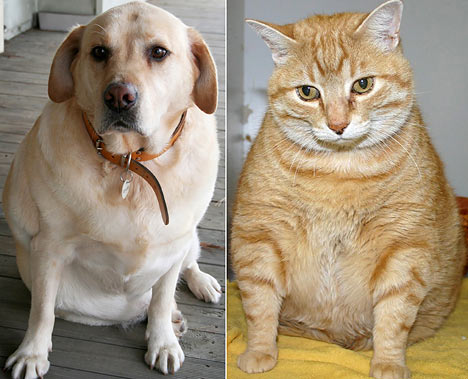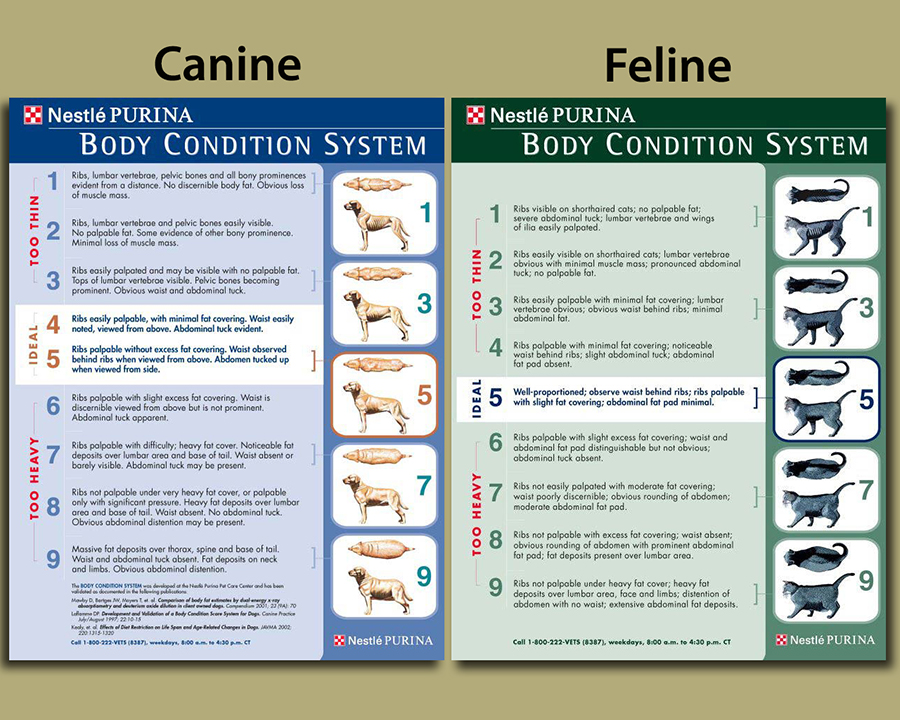Of those pets already battling the bulge about 50% of them are actually clinically obese.
One extra pound for a cat or small dog may be 10% of their body weight – this is approximately an extra 15 pounds on an average adult human! Most overweight small pets are actually carrying
an extra 2-3 pounds. In large dogs they may be carrying an extra 10+ pounds – this is equivalent to an extra 30+ pounds on you! 
Increased weight in pets can cause:
- Arthritis & mobility issues
- Urinary problems
- Skin disorders
- Respiratory problems – especially in warm weather
- Hormonal imbalances
- Diabetes, liver & kidney disease
- Fatigue leading to reluctance to play or interact with the family
- Shortened lifespan – on average overweight pets live 2-3 years less than lean pets
What can you do?
Prevention is the key – talk with your veterinarian about appropriate nutrition and ensuring your pet is not consuming too many calories a day. Treats should never be more than 10% of the total calorie intake & should be taken into account as part of the day’s calories. People food such as that little bit of milk left in the cereal bowl or that tiny taste of chicken can really add up on a small frame quickly! An extra 20-30 calories a day for your dog or cat equals a pound a year.
If your pet is already plump then talk to your veterinarian about starting a weight loss program.
Not all measuring cups are the same!
Ensure you use a standard 8oz measuring cup. The old yoghurt container is not a good scoop! Even standard measuring cups can have a 20% variance in volume; if you want to be the most accurate, measure your pet's food - 78 grams equals one cup of food.
Exercise is key.
When the insistent meowing or the big brown puppy dog eyes come out, redirect that behavior to play or more constructive behavior. By simply putting out more food your pet is training you!
Monitoring is key.
Regular weight checks & body condition checks can assist you in keeping your pet on track.

Maintaining you pet.
After the weight has been lost many owners simple change the diet back to a regular adult food. This creates a huge setback for your pet as more than 80% of pets will gain everything back in the 6-12 months following the diet change. It is best to continue with the weight loss diet at the recommended amounts suggested by your veterinarian.
St. Albert Animal Clinic offers a wide selection of veterinary diets designed to optimize your pet's health. Always remember love isn’t spelled T-R-E-A-T.
Angela Hick-Ewing, RVT,
St. Albert Animal Clinic
Resources:
